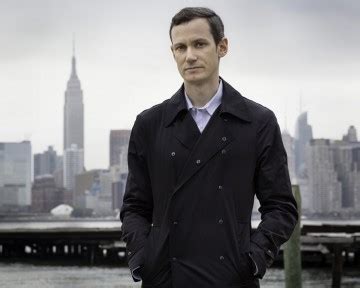A Quote by Brendan I. Koerner
Skyjackers had a pretty abysmal success rate - once you commandeered a plane in American airspace, your odds of a happy ending were slim. After the epidemic ended in 1973, what folks tended to remember most about the skyjackers was their futility.
Related Quotes
A surprising number of American skyjackers were not yet old enough to drink or sometimes even drive. These adolescents were generally inept at planning their crimes, and few of their capers met with any success; most seemed to end within moments of starting, usually after a fatherly pilot convinced the nervous teen to hand over his gun.
Most investors are pretty smart. Yet most investors also remain heavily invested in actively managed stock funds. This is puzzling. The temptation, of course, is to dismiss these folks as ignorant fools. But I suspect these folks know the odds are stacked against them, and yet they are more than happy to take their chances.
Barkley was the first of many American skyjackers whose primary interest was money; by 1972, the majority of the nation's hijackings would involve demands for ransom. Barkley himself was declared incompetent to stand trial in November 1971, at which point he was committed to a psychiatric hospital in Georgia.
Drug warriors' staunch opposition to needle exchanges to prevent the spread of HIV in addicts delayed the programs' widespread introduction in most states for years. A federal ban on funding for these programs wasn't lifted until 2009. Contrast this with what happened in the U.K. At the peak of the AIDS epidemic in the mid-1990s, the HIV infection rate in IV drug users in the U.K. was about 1%. In New York City, the American epicenter, that figure was 50%. The British had introduced widespread needle exchange in 1986. That country had no heterosexual AIDS epidemic.
[Crack epidemic] definitely has impacted folks in my family, most definitely. I think that's true for most, if not all people, regardless of color, that grew up in and around areas that were closer to the nucleus of the crack epidemic.If you look at Baltimore or D.C., Detroit, Chicago, Oakland, like, Los Angeles.
When the US government got word that I was planning to leave Russia to go to Latin America, they brought down the plane of the - the presidential plane, which had diplomatic protection, that had the Bolivian president on board. They closed the airspace in four different countries in Europe, I believe, which was extraordinary, unprecedented.
Of all the universal lies she accepted unquestioningly, the happy ending was the most absurd. The hero and heroine lived happily ever after, and the ending seemed indisputable, definitive. No questions asked about how long love or happiness lasts in that 'forever' that can be divided into lifetimes, years, months. Even days
Isn't success ridiculously easy, once it begins to succeed? ... after the strain and sweat and pushing until the very groins of your being shrieked protest, something like momentum happened. It took your wits and your concentration and your continued willing sweat, of course, to keep it going, but the success of success had ball bearings.
Most people assume that folks with amazing mental abilities were born this way and that they operate on a plane that's inaccessible to the rest of us. But nothing could be further from the truth. For more than a decade, I've studied people with uncanny abilities - card counters who can beat the house, self-taught artists, people who can remember an unbelievable amount of information. Here's the thing: These weren't innate skills - they were acquired.
The place resembled a new model prison, or one that had achieved a provisional utopia after principled revolt, or maybe a homeless shelter for people with liberal arts degrees. The cages brought to mind those labs with their death-fuming vents near my college studio. These kids were part of some great experiment. It was maybe the same one in which I'd once been a subject. Unlike me, though, or the guinea pigs and hares, they were happy, or seemed happy, or were blogging about how they seemed happy.





























